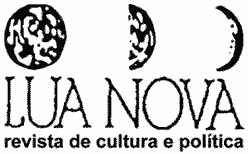Abstract
This paper examines the intellectual work of Brazilian sociologist Carlos Alberto de Medina following his professional experience in the Serviço Especial de Saúde Pública, a U.S.-Brazilian bilateral cooperation health service, and in the SAGMACS study of Rio de Janeiro’s favelas in the 1950s. Although largely ignored by the literature on the history of social sciences in Brazil, Medina’s work sheds light on how sociological perspectives contributed to the debate concerning the relations between health, development, and democracy in the period. Showing concern about the gap between the Brazilian poor masses and the world of citizenship, Medina sees both rural and urban Brazil as captured by a social-historical dynamics of authoritarianism and inequality originating in the colonial past. According to the sociologist, in the absence of reforms capable of strengthening social participation and self-government mechanisms among the masses, the modernizing process in Brazil would hardly result in effective social changes.
Keywords:
Carlos Alberto de Medina; social thought in Brazil; Serviço Especial de Saúde Pública (SESP); SAGMACS; Favelas; Development
